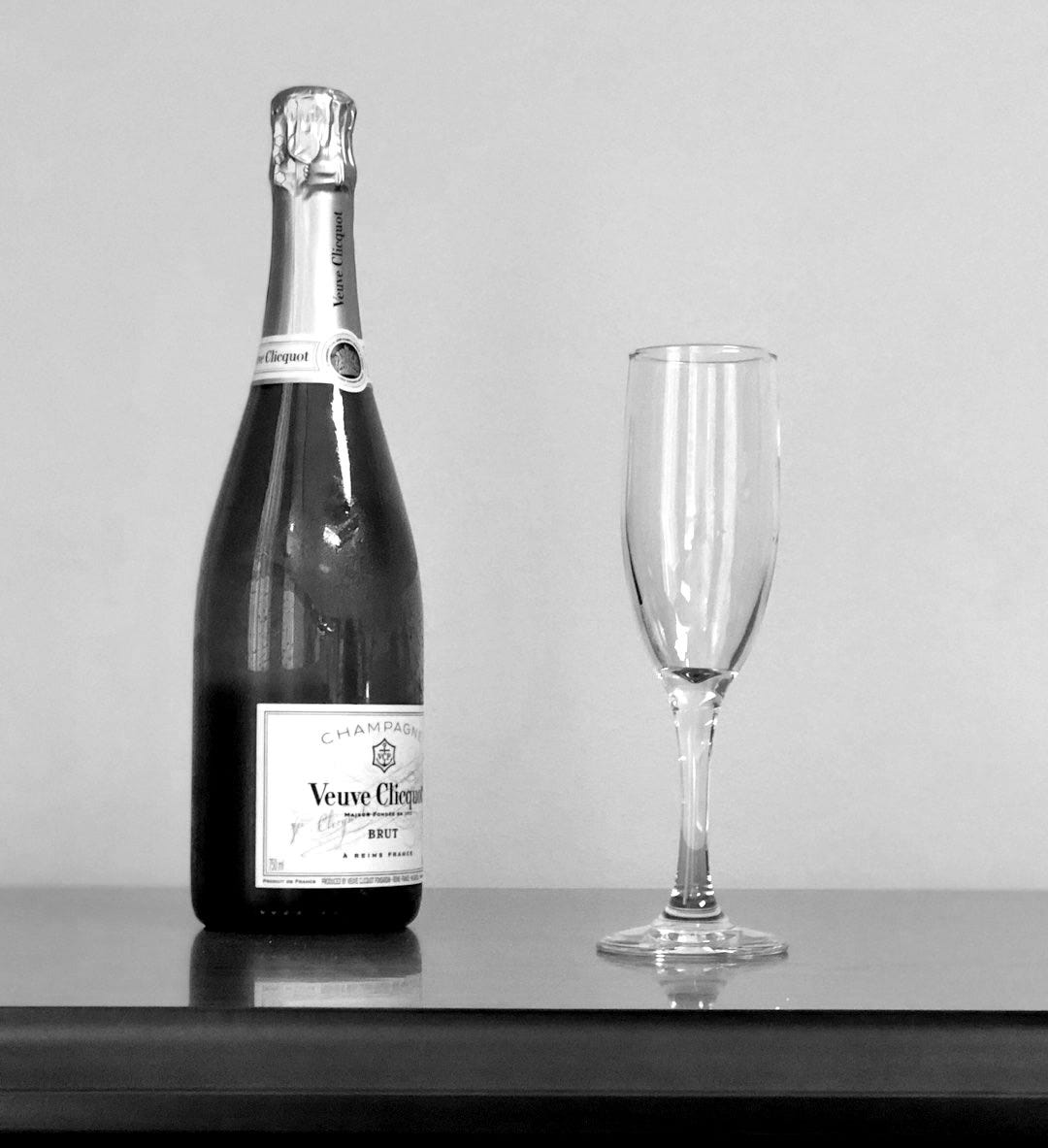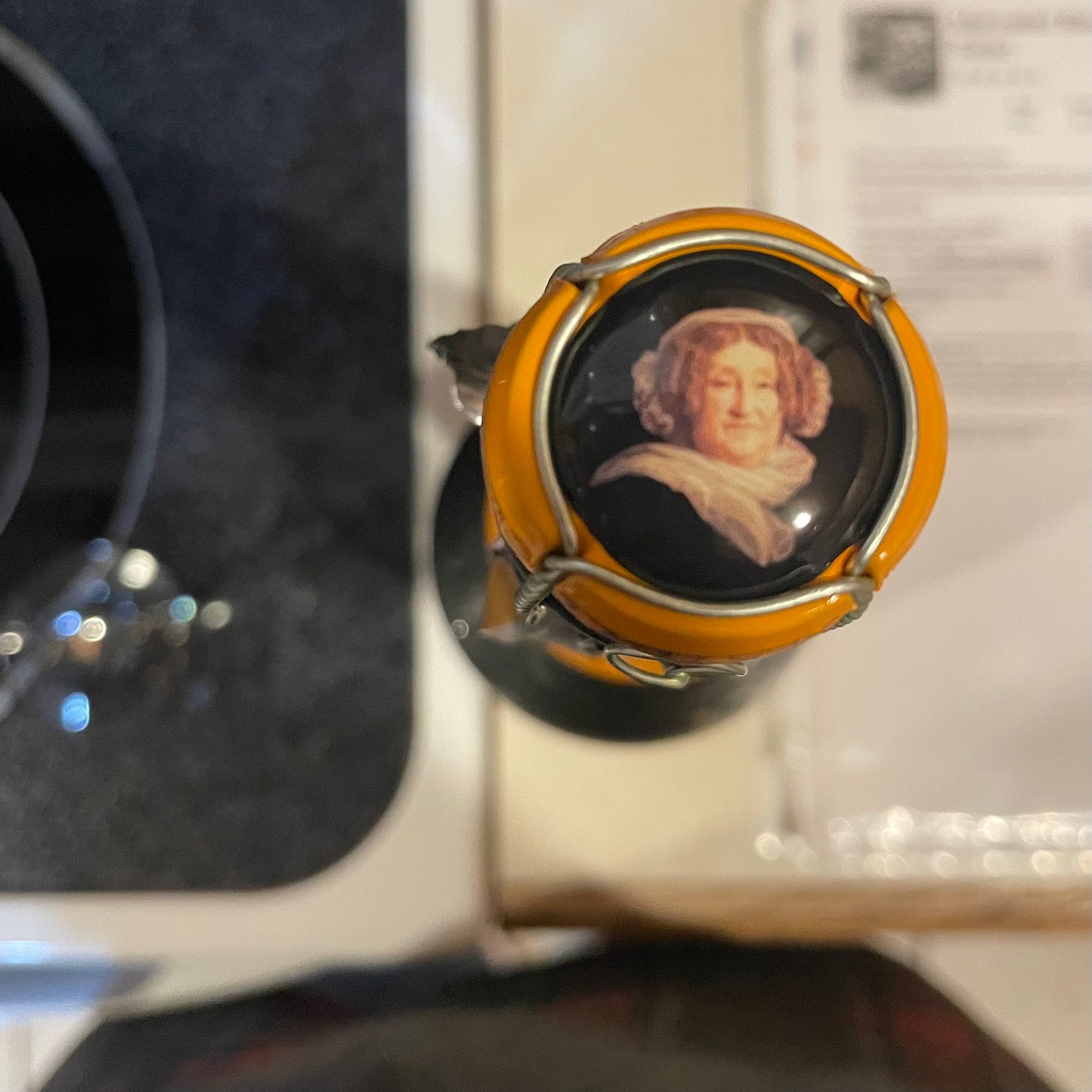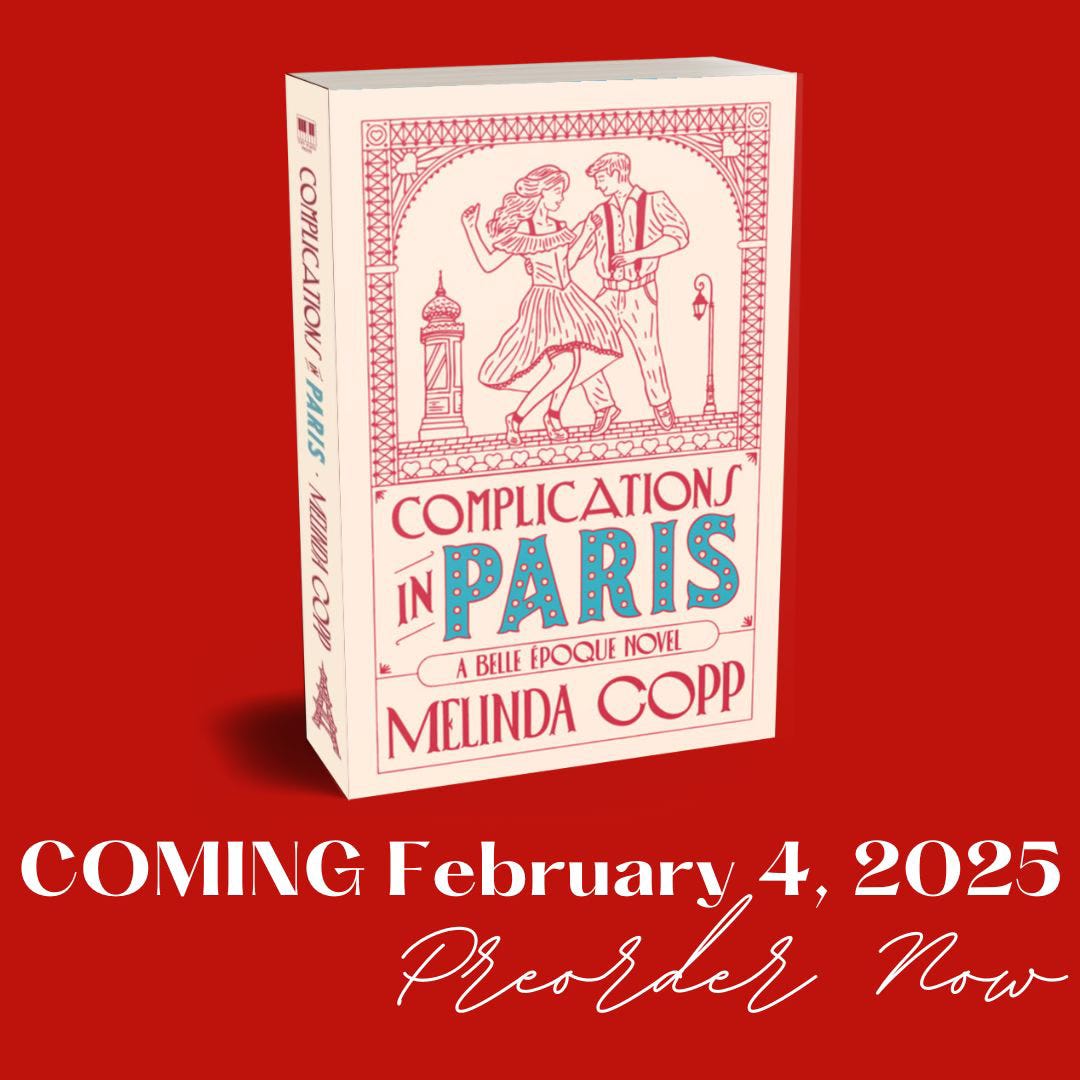
This is a story about my bottle of Veuve Clicquot. I acquired it through a neighbor—she was cleaning out her fridge, doesn’t like wine, and so she brought over a paper bag filled with bottles. I can still remember my husband bringing it in the house, me searching inside, and seeing the yellow label and foil cap among a handful of other cheap bottles. Real champagne! From the Champagne region! I exclaimed this to my husband, who couldn’t care less. I’ve known the man for over twenty years, and I’ve never seen him raise a glass of wine to his mouth. But I’ve always wanted to try Veuve Clicquot.
It’s bubbly and dry. It’s French. It has a great backstory. Founded in 1772 in Reims, the winery survived complete societal upheaval during the French Revolution, was put into mass production through innovation, and became a global luxury brand because of a twenty-seven-year-old widow. Barbe-Nicole Ponsardin, whose father was a textile merchant, grew up next door to the Clicquot family, who happened to be the Ponsardin’s biggest business competitor. The fathers arranged a marriage between their children, as all the forward-thinking business minds of the day did. But instead of going into textiles, the kids worked on the small family winery. When her husband died a few years later, Barbe-Nicole took over and basically made champagne and the champagne business what it is today. Veuve is French for widow, which is pretty cool. So there are many reasons to drink Veuve Clicquot.
But, for many reasons, I didn’t: I have three kids and a house and a hundred other things that I need to buy before I drop $60 on a bottle of anything. I am a writer, not a person with a salary. My bottle was a hand-me-down, so you might think I had no excuse not to open it and enjoy the gift my neighbor bestowed on me. Not so. The expense, whether I paid it or not, made the bottle feel too special.
More often than not, one of my three kids is waiting on a ride from me somewhere, so I can’t drink alcohol no matter how much it costs. Plus, and isn’t this the hallmark of our current moment: I rarely host friends. Granted, I have three kids and a small house and a busy life. But, sadly and honestly, these past few years haven’t been my most social. And I can’t drink a bottle of wine alone without nearly killing myself; now that I’m forty-five, I’m wise enough to heed my bodily limits. The champagne might go to waste. It can’t sit in my fridge or on the counter while I nurse it over several days the way non-bubbly wines can.
So I put it in the fridge next to a bottle of chardonnay I bought at Aldi, and that’s where it sat for over a year. I know it was there last New Year’s because I chose not to drink it—we were just hanging around the house, I was probably going to bed early anyway, and the occasion was therefore not special enough. A few bottles of Aldi wine have come and gone since. A client sent me a nice box of six different reds, which I slowly consumed last summer. And yet the champagne remained. I didn’t drink it when my essay went viral or on my birthday or when I published my book or for any other reason. I thought about it often, seeing it every time I opened the fridge, thinking about how good it would probably taste if I drank it, but then I didn’t.
Then, a few months ago, I came across an article somewhere about the human tendency to save things for a special occasion. Though I can’t find the exact article now, the argument was that saving things for a special occasion robs us of enjoying things now. Not only that, but the thing you’re saving could lose value. The pretty shirt could go out of style, for example, or it might not fit as well if you keep saving it. The good stuff can go bad. This is not the case with Veuve Clicquot, which has been found still drinkable on shipwrecks. But reading this article, I distinctly remember feeling like the author was looking at me and pointing at my refrigerator.
My most personal reason for not drinking that champagne is that, like many of us, I have trouble celebrating myself. I tend to achieve something and then carry on to the next. And I know this because I let a bottle of something I’ve always wanted to try sit in my fridge for over a year!
So I began 2025 as I wish to continue: celebrating the little things, celebrating nothing at all. I popped the bubbly at five or so on December 31 when I started cooking. I always spend a lot of time in the kitchen on New Year’s Eve and Day. So while I chopped vegetables and made a chocolate cake and mixed up dip, I drank champagne. Bubbles rushed from the bottom to the top of the flute. The taste was fizzy and bright and tart, like the ring of a bell. Crisp like a Granny Smith. By nine, I’d consumed half the bottle and was in bed, deep into my rewatch of Better Call Saul. The next morning, the cooking continued. So did the champagne. I had a glass while I cleaned and cut the collard greens. And I finished the bottle when all the cooking was finally done. I even splashed a little orange juice in the last glass because why not? The widow and I had a wonderful time.
Life is so hard. It’s probably only going to get harder. And from now on, I’m going to stop waiting for special occasions. Making occasions special sounds more fun anyway.
Happy New Year!
Melinda
P.S. Speaking of little celebrations… I have a book coming out next month! It’s already getting positive reviews! And it’s so pretty!
Complications in Paris is available now for preorder, and you can check it out here: https://www.melinda-copp.com/books.






I thought for sure you were leading into a review of this recent release which centers on the widow Clicquot's letters. It's getting a lot of praise (at least here in Canada), called The Champagne Letters by Kate McIntosh. https://www.simonandschuster.ca/books/The-Champagne-Letters/Kate-MacIntosh/9781668061886
You’re most fortunate, Melinda, that the first half bottle didn’t give you a monster hangover.